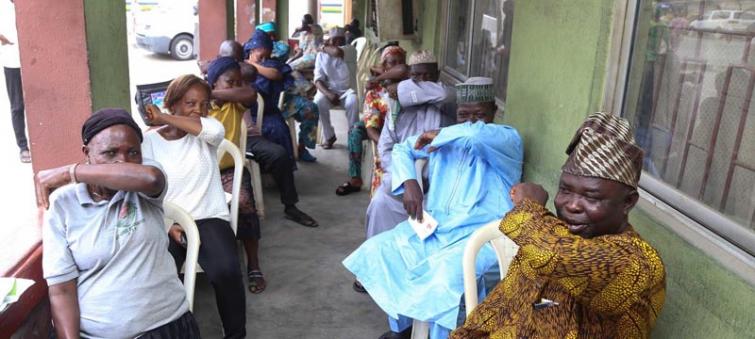
UNFPA advocates for women, girls suffering unseen impacts of COVID-19 pandemic
New York/IBNS: The United Nations Population Fund (UNFPA) is pledging support for those suffering from invisible impacts of the ongoing COVID-19 pandemic, including women and girls whose access to life-saving sexual and reproductive health care may be disrupted.
In a statement on Friday, Executive Director of the UN sexual and reproductive health agency, Natalia Kanem, said the Fund’s work is ramping up even as the novel coronavirus continues to test health care systems around the world.
Women and girls most vulnerable
As in most crises, the COVID-19 pandemic has disrupted access to critical sexual and reproductive health services and hampered authorities’ ability to respond to gender-based violence, at a time when women and girls need these services most.
UNFPA is helping governments prioritize the special needs of women and girls – often the most vulnerable in times of crises – in line with the Fund’s goals of ending unmet need for family planning, preventable maternal deaths, gender-based violence and harmful practices by 2030.
In his appeal for a global ceasefire amid the COVID-19 pandemic earlier this week, Secretary-General António Guterres emphasized that women and children are among the most vulnerable in times of war and face the highest risk of suffering devastating losses from the pandemic.
UNFPA has appealed to donors to fund its response plan, which targets countries with weak public health systems including countries in fragile and humanitarian situations. It is provisionally projecting that it will need $187.5 million.
Efforts will focus on bolstering health systems, procuring and delivering essential supplies to protect health workers, ensuring access to reproductive health and gender-based violence services, and promoting risk communication and community engagement.
Invisible impacts of COVID-19
As communities around the globe grapple with the most immediate effects of the pandemic, overwhelmed healthcare systems and populations in quarantine can also suffer a ripple of additional impacts.
“Now is a time for solidarity, resolve and selflessness. We must not forget that there are people we may not immediately see, who are at great risk as a result of the consequences of the crisis,” said Dr. Kanem.
Those can include pregnant women who require antenatal care but are unsure whether it is safe to go to the clinic, as well as women in abusive relationships trapped at home for the foreseeable future and fearing for their safety.
Coronavirus Portal & News Updates
Readers can find information and guidance on the outbreak of the novel coronavirus (2019-nCoV) from the UN, World Health Organization and UN agencies here.For daily news updates from UN News, click here.
Dr. Kanem also pointed to tens of millions of people living in refugee camps – for whom “social distancing” practices are not an option – and older people around the globe who remain isolated and starved of social interaction as they avoid infection.
Meeting ‘intimate, yet essential’ needs
UNFPA is working to support affected health systems, in particular by distributing material support to protect health workers and midwives.
In China, Iran and the Philippines, it has distributed essential hygiene and other items to the most vulnerable and personal protective equipment to health workers. In the Republic of Moldova, it has launched an online dashboard which disaggregates the country’s current caseload by location, sex, age and pregnancy status.
However, Dr. Kanem stressed that more work is needed to ensure that the most intimate – yet essential – needs of women and girls are met as the world continues to battle COVID-19 in the months ahead.
“This global scourge requires a global response,” she said, urging the international community to stand up for the dignity and health of women as part of its efforts.
Photo caption and credit: UNICEF/Ojo People living in Lagos State in Nigeria, simulate sneezing into their elbows during a coronavirus prevention campaign.
Support Our Journalism
We cannot do without you.. your contribution supports unbiased journalism
IBNS is not driven by any ism- not wokeism, not racism, not skewed secularism, not hyper right-wing or left liberal ideals, nor by any hardline religious beliefs or hyper nationalism. We want to serve you good old objective news, as they are. We do not judge or preach. We let people decide for themselves. We only try to present factual and well-sourced news.







